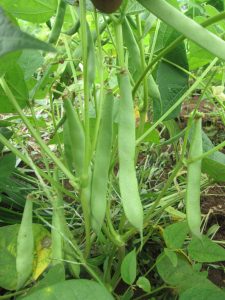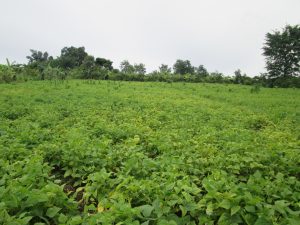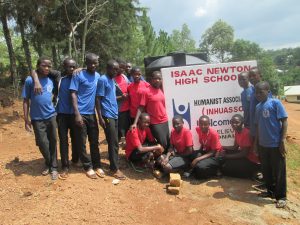 Isaac Newton High School is a product of the local community, which has nurtured the school throughout the first 10 years of its development. The school is now determined to do what it can to help the community it serves. A month or so ago it formed the Isaac Newton Community Development Association to help local farmers to raise their productivity. The school has started to buy fertilisers and seeds in bulk and provide them at cost to local farmers.
Isaac Newton High School is a product of the local community, which has nurtured the school throughout the first 10 years of its development. The school is now determined to do what it can to help the community it serves. A month or so ago it formed the Isaac Newton Community Development Association to help local farmers to raise their productivity. The school has started to buy fertilisers and seeds in bulk and provide them at cost to local farmers.
In its latest development, it is adapting the curriculum itself to the needs of the local community. A-level Agriculture students, who work on the school land to grow crops to supplement school meals, are undertaking a very practical piece of research to help local farmers by finding the optimum way to use inorganic fertilisers. Notably, they are trying to find the best levels of use of the most common inorganic fertiliser used in Uganda, DiAmmonium Phosphate (DAP).
The schools arranged for its farm land to be tilled using a tractor and then engaged the students in carrying out the planting and weeding. The A-level Agriculture class has begun a research project, using the bean garden, on the effect of artificial and natural fertilizers on the yield of beans. The garden has been divided into eight equal areas as follows
 An area where no fertilizer was applied
An area where no fertilizer was applied- An area where DAP (artificial fertilizer) was top dressed
- An area where farmyard (natural grren manure) was top dressed
- An area where DAP was buried under ground
- An area where farmyard manure was buried under ground
- An area where both manure and DAP were top dressed
- An area where both manure and DAP were buried under ground
- An area where both manure and DAP were cast and then tilled before planting
 On harvesting the weight of beans from each area will be noted and the results will be presented to the local community group, who will decide how to adapt their practices in the light of the findings.
On harvesting the weight of beans from each area will be noted and the results will be presented to the local community group, who will decide how to adapt their practices in the light of the findings.
This Humanist School is leading the way in giving its students a sense of responsibility for the community which has nurtured them. Such activities boost the genuine sense of pride which local families feel in Isaac Newton High School, which they cherish as their own.
Research by Isaac Newton students to increase local crop yields
Posted: May 17, 2017 by Steve Hurd
In its latest development, it is adapting the curriculum itself to the needs of the local community. A-level Agriculture students, who work on the school land to grow crops to supplement school meals, are undertaking a very practical piece of research to help local farmers by finding the optimum way to use inorganic fertilisers. Notably, they are trying to find the best levels of use of the most common inorganic fertiliser used in Uganda, DiAmmonium Phosphate (DAP).
The schools arranged for its farm land to be tilled using a tractor and then engaged the students in carrying out the planting and weeding. The A-level Agriculture class has begun a research project, using the bean garden, on the effect of artificial and natural fertilizers on the yield of beans. The garden has been divided into eight equal areas as follows
This Humanist School is leading the way in giving its students a sense of responsibility for the community which has nurtured them. Such activities boost the genuine sense of pride which local families feel in Isaac Newton High School, which they cherish as their own.
Category: News